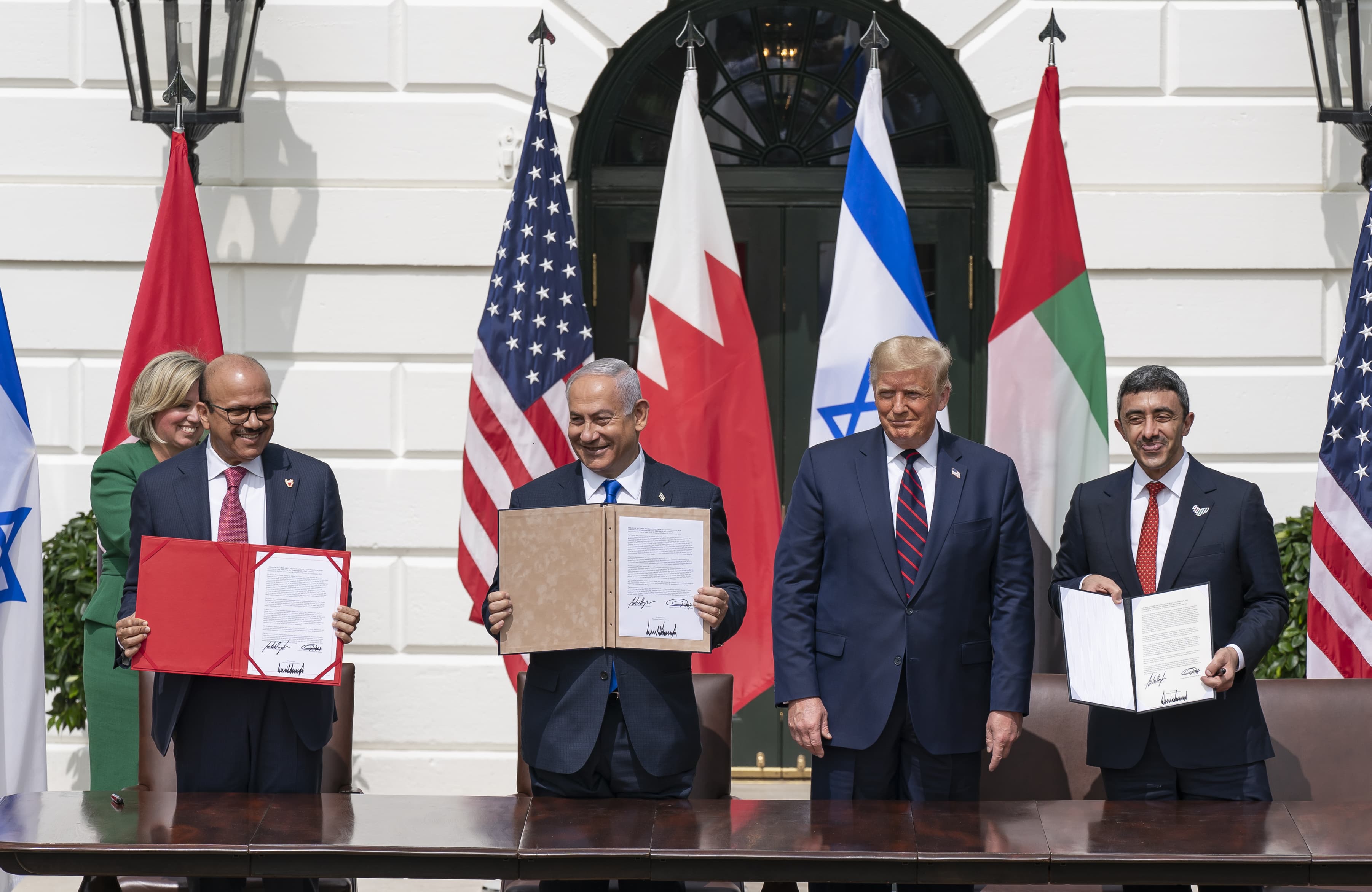Trump Hails "Greatness" as Abraham Accords Poised for Historic Expansion with Syria

Former U.S. President Donald Trump has expressed strong optimism regarding a potential, unprecedented expansion of the Abraham Accords, stating on social media, "We have a real chance for GREATNESS IN THE MIDDLE EAST. ALL ARE ON BOARD FOR SOMETHING SPECIAL, FIRST TIME EVER. WE WILL GET IT DONE!!!" This declaration comes amidst significant diplomatic efforts to broaden the landmark normalization agreements, notably including recent talks with Syria.
The Abraham Accords, initially brokered by the Trump administration in 2020, established diplomatic relations between Israel and several Arab nations, including the United Arab Emirates, Bahrain, Morocco, and Sudan. These agreements marked a paradigm shift in Middle East diplomacy, fostering economic and security cooperation and moving beyond the traditional prerequisite of a comprehensive Israeli-Palestinian peace deal. The accords were named to reflect the shared heritage of the Abrahamic religions.
A major development in 2025 saw the toppling of Bashar al-Assad's regime in Syria in December 2024, leading to new leadership under Ahmed al-Sharaa. Following a meeting with President Trump in May 2025, talks commenced to normalize relations between Syria and Israel, signaling a dramatic shift in regional alignments. Reports in July 2025 indicated that the second Trump administration was actively seeking to expand the accords further to include Lebanon and Saudi Arabia.
Despite these advancements, the path to broader peace faces complexities. The Israel-Hamas War, which began in October 2023, significantly impacted normalization efforts, particularly with Saudi Arabia, which has since reiterated its stance that a viable path to an independent Palestinian state remains crucial for any agreement. Public opinion in many Arab countries also remains critical due to the unresolved Israeli-Palestinian conflict, and the UAE previously warned that Israeli annexation of the West Bank could jeopardize the accords.
President Trump's recent statement underscores a renewed push to build on the foundation of the original accords, aiming for a more integrated and peaceful Middle East. The ongoing dialogues, particularly with Syria, represent a potentially historic step in reshaping regional dynamics and fulfilling the vision of "something special" in the Middle East.